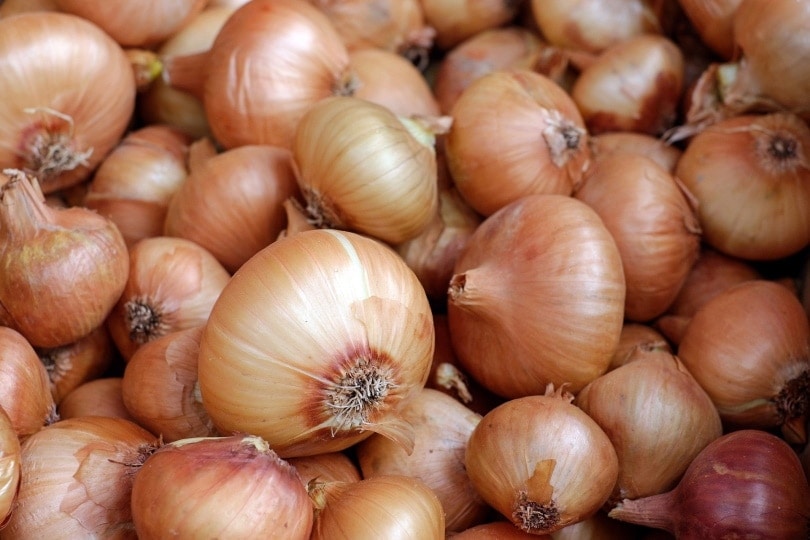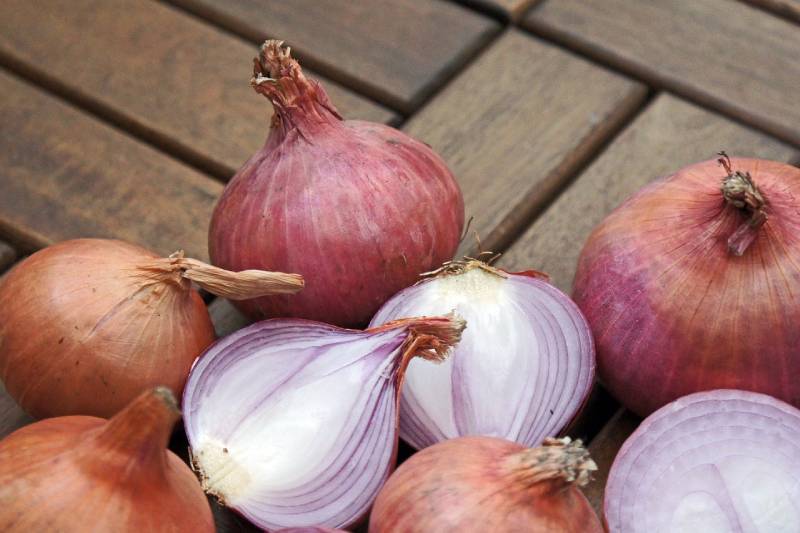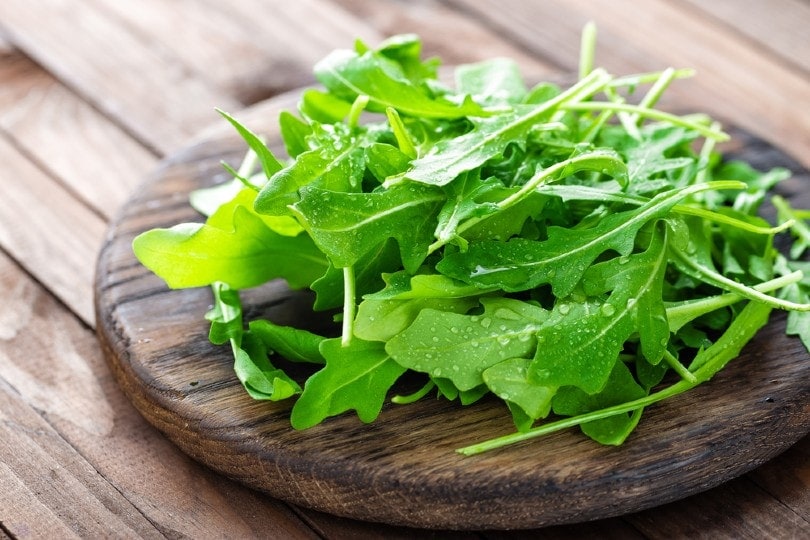Can Bearded Dragons Eat Onions? Our Vet Approved Advice
Updated on

Ever wondered, “Can bearded dragons eat onions?” If so, let us put it straight for you: no, they can’t. Those tear-jerking orbs we so often chop, dice, and sauté for our meals are firmly off the menu for our scaly friends. But don’t let this news get you down! Let’s explore the intriguing realm of bearded dragon nutrition, understand why onions are a no-no, and discover what foods are indeed on the guest list for their culinary party.
Bearded Dragon Diet Basics
The dietary portfolio of bearded dragons is a fascinating medley of diverse edibles. In the wild expanses of their native Australia, these hardy reptiles dine on a smorgasbord of insects, juicy plant matter, and occasional fruits. But when the dinner bell rings for onions, our bearded buddies would be wise to decline.
All About Onions: What’s the Big Deal?
You might ask, “What’s so offensive about onions?” The problem lies in their composition. Onions, along with their Allium family relatives like garlic, leeks, and shallots, contain a compound named thiosulphate. This substance, while easily handled by humans, is a stumbling block for bearded dragons who lack the necessary enzymes to metabolize it. On top of that, onions are too acidic for bearded dragons and have a poor calcium-to-phosphorus ratio.

Thiosulphate: The Invisible Culprit
Thiosulphate, a compound formed of sulfur and oxygen, is the unseen menace we are focusing on today. This substance, found in notable quantities in onions and other Allium family members, is perfectly harmless and even beneficial to humans. However, its biochemistry doesn’t play out the same way in the metabolic system of bearded dragons.
The primary issue with the gradual hoarding of thiosulphate in a bearded dragon’s system is its potential to spark a form of anemia: Heinz body anemia. Named after the characteristic “Heinz bodies” or clumps that form within the red blood cells, this condition sabotages these cells’ vital function as oxygen carriers. The stealthy onset of Heinz body anemia does not immediately ring alarm bells, making it a particularly sly threat. Its initial signs might be easily dismissed—your bearded dragon appearing slightly sluggish or showing decreased appetite. But if left unchecked, thiosulphate’s continued build-up and the subsequent multiplication of Heinz bodies can escalate these symptoms, resulting in significant health complications. This is why it’s pivotal to exclude thiosulphate-rich foods, like onions, from your bearded dragon’s diet.
Emergency Measures: When Your Bearded Dragon Has Overdosed on Onions
If you find yourself in the unfortunate situation where your bearded dragon has indulged in an onion feast, don’t panic. The first course of action is to contact your vet immediately. Symptoms of onion toxicity might not be immediately apparent, as the effects of thiosulphate can be gradual.
Your vet may suggest some preliminary interventions or recommend that you bring in your bearded dragon for a thorough check-up. This is a crucial step in managing the situation, as professional medical help is paramount in diagnosing and treating potential health issues arising from the onion ingestion.
The Power of Variety: Alternatives to Onions
Now that we’ve established the red flag waving over onions for bearded dragons, it’s natural to ask, “What else can my scaly friend munch on?” The good news is that there’s an entire spectrum of safe, wholesome, and utterly delectable alternatives waiting to be discovered!
Leafy greens like mustard greens, turnip greens, and dandelion leaves bring a splash of vibrant green to your dragon’s plate. Crunchy bell peppers and squash introduce exciting textures and flavors, while also packing a punch of essential vitamins and minerals. Insects, too, have a starring role in the bearded dragon diet. A medley of crickets, mealworms, and dubia roaches offers not just protein-rich nourishment but also an exciting hunting experience for your pet. Together, these diverse food options weave a culinary tapestry that promises both safety and satisfaction for your bearded dragon.
In our quest to provide the best for our pets, it’s also important to consider safe feeding practices. This involves not only choosing the right foods but also ensuring they’re appropriately sized and prepared. And, of course, remember to provide fresh, clean water alongside their food to keep your dragon well-hydrated.

Final Thoughts: Onions and Bearded Dragons
In conclusion, the onion narrative brings us to a bittersweet end. Onions, despite their integral role in human gastronomy, are firmly stationed in the red zone when it comes to a bearded dragon’s dietary chart. But don’t let this put a damper on your enthusiasm for your bearded dragon’s culinary journey. The world of bearded dragon-friendly food is teeming with a delightful and nutritious assortment of greens, veggies, fruits, and bugs.
Remember, as a bearded dragon caregiver, your primary role is to ensure a wholesome diet that can help your scaly companion thrive, and with the information you now have, you are splendidly equipped to do just that! Happy feeding!
See Also:
- Can Bearded Dragons Eat Leeks? Vet-Approved Pros, Cons & Tips
- Can Bearded Dragons Eat Jalapenos? Vet-Reviewed Nutrition Facts & FAQ
Featured Image Credit to: Couleur, Pixabay












